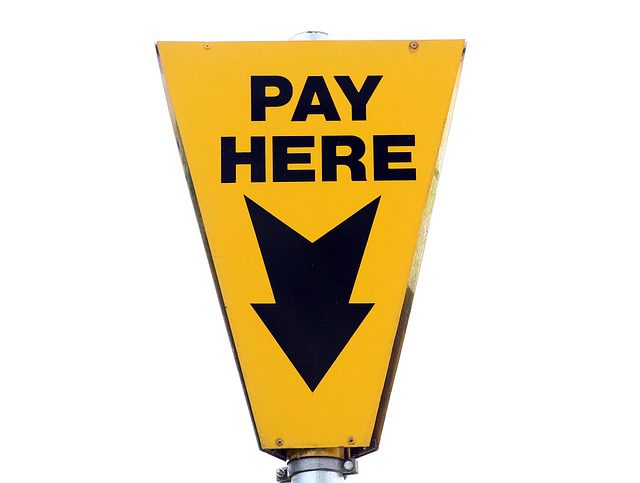🌟 Timeshare Maintenance Fees and Special Assessments
Owning a timeshare can be full of surprises. Like when you receive your first unexpected special assessment fee in the mail. When it’s time to get out of your timeshare, reach out to Linx Legal. Over 98% of our clients have successfully canceled their timeshare contracts.
- Stop The Monthly Payments
- Stop The Maintenance Fees
- Accredited With The BBB, A+ Rating, 5 Star Reviews
- Over 98% Success Rate
- In Business Over 15 Years
- Helped Thousands of Clients
Our BBB rating
Please see our BBB rating. We have been in business since 2009, and have cancelled thousands of Wyndham timeshare contracts. We are accredited, have an A+ rating, and have a five start review history. Our motto here at Linx Legal is ‘Only the Best is Good Enough’. Many of the timeshare cancellation companies are brand new, just appearing in 2022 and 2023. Start the process today of getting rid of a Wyndham timeshare.


Types of Fees
- Maintenance fees are annual payments to your home resort for the operation, maintenance, and repair costs to keep the resort.
- Special assessment refers to random fees that owners must pay upon the resort’s request to cover the cost of significant repairs or upgrades to the resort.
- In addition to fees, you’ll also pay increased taxes.
- Some resorts charge a fee upon check-in that is not part of your timeshare ownership costs.
Reasons Maintenance Fees Can Suddenly Change
- A high delinquency rate in owner’s payments, leaving the rest of the owners to make up the difference.
- If the resort must cover repair issues above that which maintenance fees don’t cover.
- An active hurricane or severe weather season caused too much damage to the property.
What Do Special Assessment Fees Cover
The cost of upkeep for the resorts goes above and beyond the annual maintenance fee amount. In these cases, special assessments are charged to cover the expenses. These reasons could include;
- Severe exterior property damage
- Major interior flooding repairs or drainage system upgrades
- To cover big-ticket items like new roofs or heating systems, to make up for budget shortfalls or to bank for future expenses.
Timeshare sales reps usually pass quickly over extra fees, so owners rarely consider special assessments in their ownership responsibilities.
Can I Refuse to Pay my Fees
Sure. However, you very like will be subject to foreclosure or a credit smear. Although rare, your timeshare company could file a lawsuit to collect the back fees. If you really want out of your fees, you must get out of your timeshare altogether. As long as you have steak in a timeshare, you’ll owe maintenance and special assessment fees.
Canceling your timeshare is the only true way to get rid of it. Although others will have you believe otherwise. refinancing just keeps you in deep debt. And chances of selling your timeshare on the resale market are slim to none.
Mexico is the exception of foreclosure due to nonpayment. If you own the right-to-use timeshare in Mexico, the timeshare company won’t foreclose if you default. But, the resort could still sue you for the past-due amounts, or turn the debt over to a collection agency.
Take Our Short Quiz and Start Living Life Timeshare Free 🏖️ 💰 ✈️
Declining Ownerships
What happens when timeshare resorts don’t sell enough weeks or vacation memberships? You guessed it, costs for owners go up. So why aren’t people buying as many timeshares these days? Because people have access to more information than ever before and realize fundamental truths about timeshare ownership.
- There is a huge rental market for timeshares. Sites like RedWeek and Armed Forces Vacation Club offer rentals for less than half of what owners pay for a week at their home resort.
- Timeshares lose value the moment the contract is signed, much like when you buy a car.
- Friends and family members who own timeshares complain that fees are increasing while the resort’s quality deteriorates.
The Confusing Contract
Complex wording used in contracts confuses the buyer. Potential owners are then less likely to question it after a lengthy presentation. This is called daze and confuse strategy; Wyndham uses this tactic a lot during the sales presentation. A common fraud in the industry contract is to verbally misrepresent the belief that no added fees besides the regular maintenance payments will be charged. This is a lie.
Examples of Fee Fraud
Owners at Raintree resort in Hawai’i were stunned when they received a Special Assessment around $1,200, and it was due within several months of the notice of the assessment. Many owners had to surrender their deed and, in turn, hurt their credit. Some of the owners have filed an injunction to give them time to investigate the truth about rising resort costs.
They’re not the only timeshare company involved in fraud. Diamond Resorts International also has its hands full with fraud allegations. And if you choose to take legal action against the resort (assuming you have grounds to do so), bear in mind that the cost for such litigation is quite high. Remember when the salesperson promised you that the maintenance fees would keep the resort looking as good as the day you toured it. That was a lie.
Diamond Resorts Reduce Owner’s Benefits
Yes, the HOA can reduce your benefits while at the same time increasing your Special Assessments. Do you feel like you’re in the dark about what’s going on at your home resort? As an owner, you have the right to know where the funds are being allocated. Call and ask your timeshare company to send you a comprehensive list of all special assessment and maintenance fee increases for the past 10 years. It will give you some idea of the direction of your checkbook in the future.
Taxes & Fees
Special assessment fees are not tax-deductible. Think of them like parts of insurance policy you’ll share with hundreds of other people. Timeshare companies have been knowns to impose assessment fees without cause. They know the members will have few or no options to fight against their large companies.

How to Safely Cancel Your Timeshare Contract
If the thought of a huge unexpected bill arriving in your mailbox scares you, it’s time to make a move to get out of your timeshare contract. Once your timeshare contract is canceled, you’ll be completely free from the burden of ownership. Linx Legal will show you exactly how to cancel a timeshare.
Linx Legal streamlines the timeshare exit process. There is no timeshare release problem that we can’t resolve. Our friendly team will talk with you about exit options free of charge. Find out how to cancel your contract today!
Take a few minutes to fill out this basic questionnaire
Call us toll-free at 1-800-604-3989
